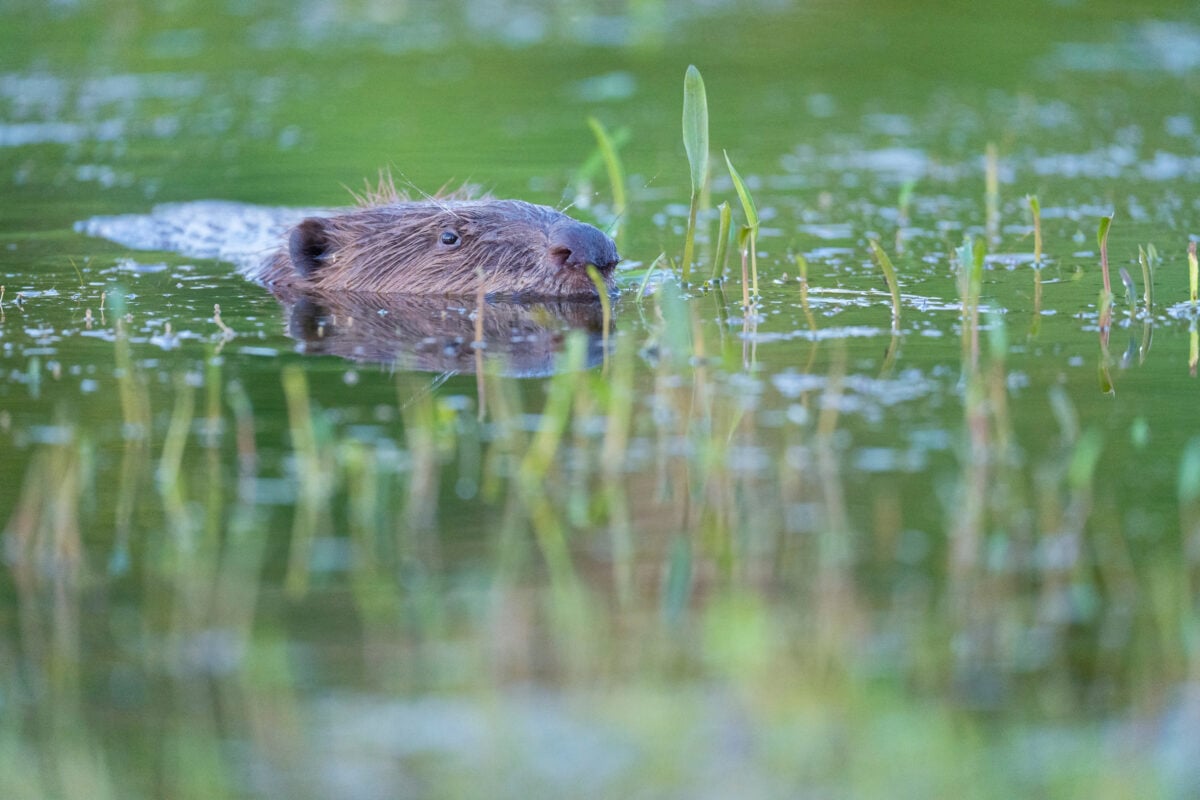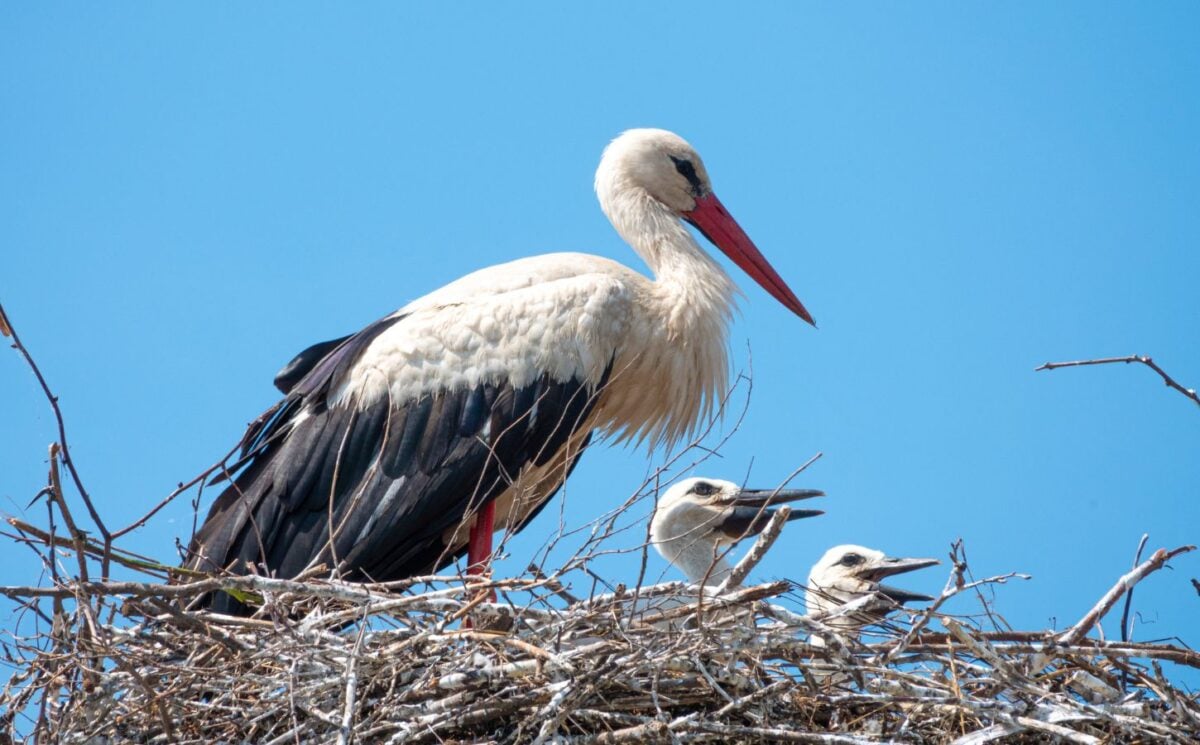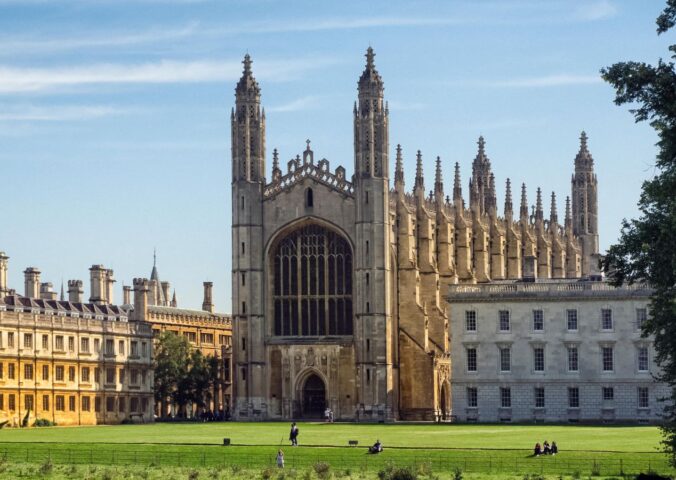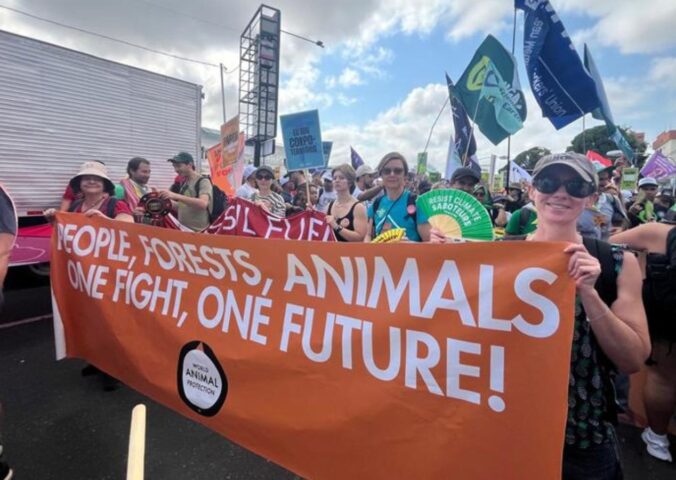The British rewilding group Citizen Zoo hopes to reintroduce the elusive white stork to the capital city of London.
Read more: Protecting 1.2% Of Earth’s Land Could Save Rare And Threatened Species, Study Says
Citizen Zoo plans to investigate possible locations for stork reintroduction in Greater London. The group is engaging with the community to discuss what the project could mean for the area, and to gauge how locals feel about the sometimes controversial subject of rewilding.
The news follows the successful reintroduction of white storks to Sussex in 2016, which in 2020 led to the first recorded wild breeding in the UK in over 600 hundred years. Last year, the population grew with an “impressive” 29 new chicks hatched across 11 nests.
“We don’t know if it’s possible yet, but how amazing would it be if white storks nested in St James’s Park, beside Buckingham Palace, as a symbol of ecological recovery in the capital,” said Elliot Newton, co-founder of Citizen Zoo, speaking to the Guardian.
Storks are sometimes spotted in London already, including at Beddington Farmlands Nature Reserve and around Wandsworth Common – both of which include the open grass and wetland areas that the large white birds favor.
“We know we have habitat here, and there’s a lot of wetland restoration occurring across Greater London as well so hopefully the habitat opportunities are increasing over time,” said Newton. “White storks breed excitement,” he added. “We’re hoping to engage and motivate people to consider their reintroduction.”
Read more: New Study Names Biodiversity Loss As The Main Driver Of Infectious Disease Outbreaks
Rewilding promotes widespread ecological health

Citizen Zoo specializes in community-led urban rewilding and helped spearhead the successful Ealing Beaver Project in October last year. Just months after their reintroduction, Ealing’s beavers are thriving and have already begun transforming the local environment.
While beavers and storks are ecologically important in their own right, each can also be considered an “umbrella species,” meaning that their reintroduction and protection have a wide-reaching positive impact on other species and habitats in the area.
For example, the reintroduced beavers’ digging and dam building help filter water, trap carbon, promote biodiversity, and mitigate soil erosion.
If reintroduced, a resident stork population would help manage prey species like insects and small mammals. Their nests – up to two meters in diameter and more than a tonne in weight – would also provide a habitat for countless other birds, mammals, and invertebrates.
Storks are UK natives, but the long-distance migratory birds have been a relatively rare sight for centuries. Rewilding Britain and the White Stork Project – which aims to create a widespread breeding population – also argue that storks require reintroduction.
Read more: George Monbiot On What The Environmental Movement Is Missing






